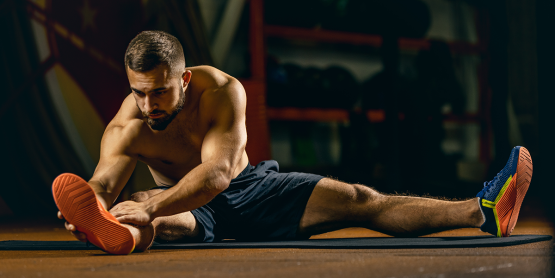- You have no items in your shopping cart
- Continue Shopping

The pursuit of building muscle mass and achieving fitness goals can be a demanding and challenging journey, requiring a lot of hard work, dedication, and discipline. While most people tend to focus on the training aspect of bodybuilding, recovery is equally important. When you work out, you are essentially breaking down your muscles, and it’s during the recovery phase that the real work of building muscle occurs. Sleep plays an indispensable role in the recovery and growth of your muscles.
How Does Sleep Effect Muscle Growth?
Sleep is crucial for muscle repair and growth because it is during this period that your body produces growth hormone, which is essential for muscle recovery and growth. This hormone stimulates protein synthesis, which is the process of building new proteins in the body, including muscle tissue. Growth hormone also increases the production of insulin-like growth factor-1 (IGF-1), which promotes the growth and repair of bones and muscles.
In addition to growth hormone, sleep also helps regulate cortisol levels. Cortisol is a stress hormone that can be harmful to muscle growth if levels are too high. When you don’t get enough sleep, cortisol levels can rise, which can slow down muscle growth and recovery. Elevated cortisol levels can also lead to the breakdown of muscle tissue, which can have a negative impact on your bodybuilding goals.
Doesn’t More Sleep Mean I’m Lazy?
Research has shown that getting more sleep can have a significant impact on muscle recovery and growth. Athletes who get more sleep tend to have better muscle recovery and growth than those who don’t get enough sleep. A study conducted on basketball players found that those who slept for an extra 2 hours per night experienced significant improvements in reaction time, speed, and accuracy compared to those who only slept for 7 hours per night.
Another study found that athletes who slept 10 hours per night experienced significant improvements in muscle recovery and strength compared to those who only slept 8 hours per night. This shows that getting enough sleep is not only important for muscle recovery but can also have a positive impact on athletic performance.
It’s Not Just About Hours – It’s About Quality Too
Apart from the quantity, the quality of sleep is also important for muscle recovery and growth. It is recommended that adults get 7-9 hours of uninterrupted sleep per night. To improve the quality of your sleep, you can try establishing a regular sleep routine, creating a comfortable sleep environment, and avoiding caffeine and electronic devices before bedtime. Practicing relaxation techniques such as deep breathing, meditation, or yoga can also help improve the quality of your sleep.
In conclusion, sleep is an essential factor in muscle recovery and growth, which is often overlooked in the pursuit of bodybuilding goals. It is during sleep that your body produces growth hormone and regulates cortisol levels, which are essential for muscle repair and growth. Therefore, if you want to maximize your gains and achieve your bodybuilding goals, make sure you prioritize getting enough quality sleep. It can make a significant difference in your performance and overall well-being.





